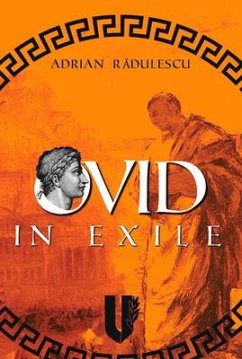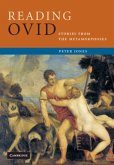Ovid in Exile provides a rare and insightful look at the life and works of the remarkable Roman poet Publius Ovidius Naso, who, two thousand years after his death, remains one of the most influential figures in all of world literature. It examines his banishment to Tomis, on the Black Sea coast, and the impact of his exile on his literary work.
Hinweis: Dieser Artikel kann nur an eine deutsche Lieferadresse ausgeliefert werden.
Hinweis: Dieser Artikel kann nur an eine deutsche Lieferadresse ausgeliefert werden.








